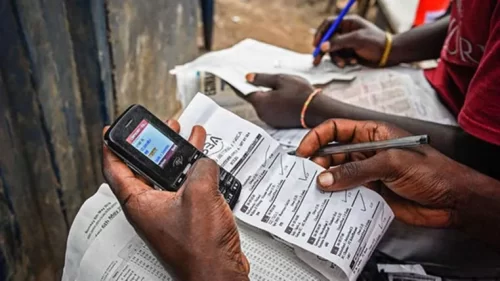Gambling Regulations in Nigeria: Should NLRC be Scrapped?
The National Lottery Regulatory Commission (NLRC) in Nigeria was established with the aim of regulating and overseeing the lottery and gambling (gaming) industry in the country.
However, there have been growing concerns and criticisms regarding the effectiveness and efficiency of the commission in fulfilling its objectives.
It then becomes imperative to now examine the reasons why stakeholders in the industry feel that the NLRC should be scrapped.
This position is mostly based on various aspects such as the lack of transparency and accountability in the commission’s operations, inefficient utilization of funds for social development, inadequate regulation and oversight of gambling activities, high incidences of fraud and scams in the industry, negative impact on small-scale gaming operators and local businesses, lack of interest by the commission on responsible gambling initiatives and lack of international best practices in gaming/gambling regulations.

By exploring these issues extensively, a lot more light will be shed on the need for reform and alternatives to improve the Nigerian gambling sector.
The NLRC was established in 2005 with the aim of regulating and overseeing lottery and other gaming activities in the country.
Its establishment was seen as a way to generate revenue, promote transparency, and protect consumers in the industry. Though the establishment of the commission was purely accidental, as it was initially set up to manage the funds generated from the Sports Lottery concept that was set up at that period.
The main objectives of the NLRC then became to ensure the integrity of lottery/gaming operations, protect the interests of players, and generate funds for social development programs.
- Related Topic: Why Nigeria isn’t among investors’ favourite destinations
The commission also took up the responsibility of issuing licenses, monitoring gambling activities, and enforcing compliance with regulations.
One of the major concerns with the National Lottery Regulatory Commission is the lack of transparency in the licensing and permitting process, the allegations of mismanagement as well as lack of financial accountability of funds for CSR and Good Cause. There have been little or nothing to show where the funds intended social development programs are spent.
Above all these is the fundamental issue of the near absence of a clear cut plan to encourage Responsible Gambling and tackle menace of problem gambling in the country.
As the month of November is globally observed as commemorative month for Responsible Gambling, it is noteworthy to explain how Responsible gambling promotes a healthy balance between entertainment and potential financial loss.
This is because Problem gambling can have severe financial implications for individuals and their families. Many gamblers who struggle with addiction end up in debt, squandering their savings and assets. The financial strain caused by problem gambling can lead to negative consequences such as poverty, bankruptcy, strained relationships and mental health complications.
Responsible Gambling therefore, is exclusively the role of an interested industry regulator…a trait of which NLRC has been grossly lacking in.
At the launch of an Online betting platform BETBABA in Lagos recently, the managing director of the company, Francis Ifie, noted that irresponsible gambling and betting have caused serious issues for gambling addicts and people who suffer from gambling-related harm. At the time, he called out NLRC for failure to should impose strict rules to make sure that betting companies are in line with strict measures that will fight the further spread of problem gambling and gambling-related harm.
According to him;
“it is important that Nigerian gambling operators have facilities on their betting platform that promote safe and responsible gambling, and it is imperative that NLRC should have been more focused on such a regulation”.
Because responsible gambling goes beyond promoting a safe and enjoyable experience while minimizing the potential harms in gambling, it also goes a long way to showcase the social responsibility side of the industry by encouraging the use of parts of the funds the regulator is entitled to, to promoting

good causes, CSR and other values in the society.
This brings up another of the key reasons why the National Lottery Regulatory Commission should be scrapped, which is the poor utilization of funds generated from the gaming industry that has a direct impact on social development programs in Nigeria. Insufficient funding and misallocation lead to the underfunding of vital initiatives, such as healthcare, education, and infrastructure development.
This not only hampers the progress of these programs but also undermines the potential benefits that the gaming industry could bring to society.
In addition to the forgoing, the National Lottery Regulatory Commission has been criticized for its weak regulatory framework and inadequate enforcement mechanisms owing to the perceived unconstitutional framework on which the commission’s existence lies.
Without delving much into the egregious wordings of the Constitution of the federal republic of Nigeria, it is important to note that issues pertaining to the powers of the federal government in exclusive list and concurrent list, did not give the powers to regulate gambling to the federal executive.
Therefore setting up a federal agency to undertake the role of gambling regulation for the entire country is already a mis-application of the law. But as this particular matter is already before the Supreme Court, such will be left in the hands of the Honourable Justices to sort out.
The lack of effective compliance, monitoring and enforcement actions further weaken the commission’s ability to regulate the gambling industry.
This is obviously as a result of the diversity of the country, which makes it certain that regulation of gambling can not be the responsibility of a central agency but rather the individual states where such gambling practices are allowed.
Looking at international best practices and success stories in gambling regulation, it becomes clear that alternative approaches can yield more effective results.
Various countries like South Africa, Kenya, Tnazania and Bostwana, have implemented successful gambling regulatory reforms, showcasing models that prioritize transparency, accountability, stringent security measures as well as concerted efforts at promoting responsible gambling.
By the statutes that most African regulatory bodies under the auspices of The Association of Gaming Regulators in Africa, adhere to, has always been in the area of testing and certification, responsible gambling, curbing illegal gambling, training and research. Instructively ‘Licensing’ is not one of those in focus for regulators as is being done in Nigeria through the NLRC.
To address the challenges faced by the NLRC, alternative approaches should be considered. Empowering state and even local governments to play a more active role in oversight, licensing and regulation that can lead to better outcomes.
Also implementing transparent and accountable gaming regulatory frameworks, coupled with encouraging innovation and technology adoption, can also bring much-needed improvements to the sector.
By exploring these alternative approaches, Nigeria can pave the way for a more efficient and trustworthy gaming system.
In conclusion, the NLRC faces significant issues in transparency, accountability, fund utilization, and regulation of gambling activities.
These challenges undermine the commission’s effectiveness and compromise its ability to fulfil its objectives. Scrapping the commission and implementing reforms that address these issues could lead to more efficient and beneficial gambling/gaming industry in Nigeria.












